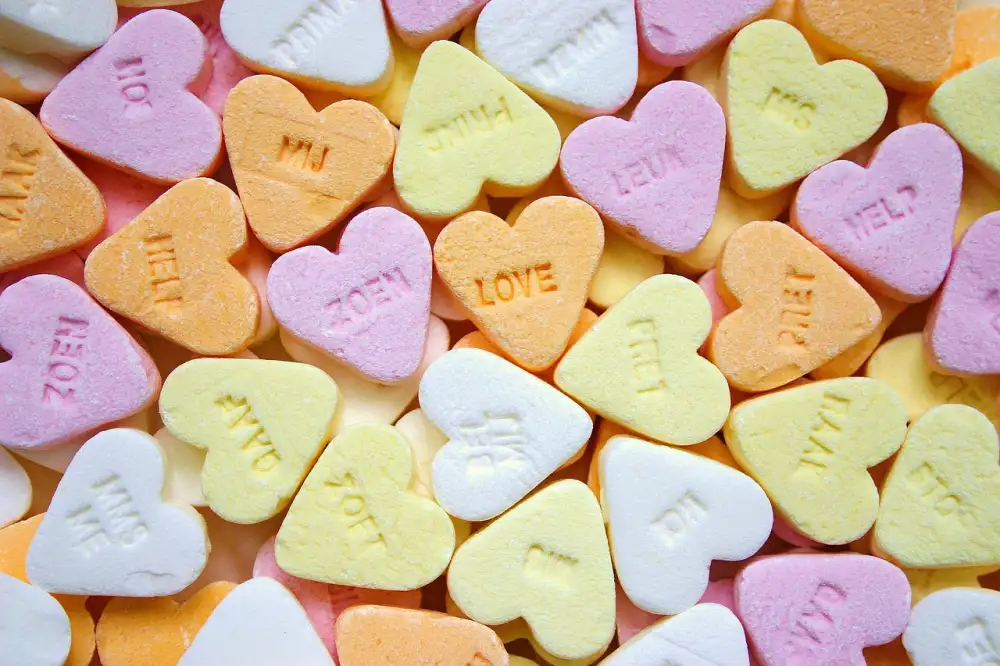Skittles Banned: Unveiling the Controversy Surrounding this Colorful Treat

- Understanding the Ban: Reasons Behind Skittles Prohibition
- Health Concerns: Exploring the Potential Risks of Skittles Consumption
- Legal Implications: Laws and Regulations Surrounding Skittles Ban
- Public Reaction: How Consumers Are Responding to the Skittles Ban
- Alternatives: Discovering Delicious Substitutes for Skittles
In a surprising turn of events, the beloved candy treat, Skittles, has been banned in several countries, leaving its fans in disbelief. Known for their vibrant colors and fruity flavors, Skittles have long been a popular choice among both children and adults. However, recent developments have shed light on the potential dangers associated with this seemingly innocent snack. In this article, we will delve into the reasons behind the Skittles ban, explore health concerns surrounding their consumption, examine the legal implications, and gauge public reaction to this controversial decision. Stay tuned as we uncover the truth behind this shocking revelation and its impact on our snacking choices at home.
Understanding the Ban: Reasons Behind Skittles Prohibition
The recent ban on Skittles has left many consumers puzzled and curious about the reasons behind this prohibition. The decision to prohibit Skittles stems from concerns over the ingredients used in its production. Skittles contain artificial colors, flavors, and preservatives that have been linked to various health issues.
One of the main concerns is the use of artificial food dyes in Skittles. These dyes, such as Red 40, Yellow 5, and Blue 1, have been associated with hyperactivity in children and allergic reactions in some individuals. Studies have also suggested a potential link between these artificial colors and certain types of cancer.
Additionally, Skittles contain high amounts of sugar, which can contribute to obesity, diabetes, and dental problems when consumed in excess. The combination of artificial additives and excessive sugar content raises concerns about the overall nutritional value of Skittles.
Furthermore, there are growing concerns about the environmental impact of producing Skittles. The production process involves significant water usage and contributes to plastic waste due to packaging materials. This has led to calls for more sustainable alternatives to be explored.
In light of these concerns, health authorities and regulatory bodies have taken action to protect consumer well-being by imposing a ban on Skittles. This ban aims to encourage healthier snacking choices and promote awareness about the potential risks associated with consuming such artificially flavored treats.
As consumers become more conscious about their health and well-being, it is crucial for manufacturers to adapt their production methods and ingredient choices accordingly.
Health Concerns: Exploring the Potential Risks of Skittles Consumption
While Skittles may be a beloved treat for many, recent studies have raised concerns about the potential risks associated with their consumption. One of the main concerns is the high sugar content found in these colorful candies. A single serving of Skittles contains a staggering amount of sugar, which can contribute to weight gain, tooth decay, and an increased risk of developing chronic diseases such as diabetes.
Additionally, Skittles are made with artificial colors and flavors that have been linked to various health issues. Some studies suggest that these additives may cause hyperactivity in children and allergic reactions in sensitive individuals. Moreover, the artificial dyes used in Skittles have been associated with adverse effects on behavior and attention span.
Furthermore, Skittles contain hydrogenated oils, which are known to be harmful to heart health. These oils are high in trans fats, which can raise bad cholesterol levels and increase the risk of heart disease.
It is important to note that moderation is key when it comes to consuming any type of candy or sugary treat. However, given the potential health risks associated with Skittles consumption, it is advisable to limit their intake or consider healthier alternatives for satisfying your sweet tooth.
Legal Implications: Laws and Regulations Surrounding Skittles Ban
The ban on Skittles has raised questions about the laws and regulations governing food products. The decision to prohibit Skittles was not made lightly, as it required a careful examination of existing legislation. It was discovered that Skittles contained certain ingredients that were deemed harmful or potentially dangerous for consumption.
Food safety regulations play a crucial role in protecting consumers from potential health risks. These regulations are put in place to ensure that food products meet specific standards and do not pose any harm to the public. In the case of Skittles, it was found that certain additives used in the production process were linked to various health concerns.
Furthermore, labeling requirements also come into play when it comes to banning a product like Skittles. Clear and accurate labeling is essential for consumers to make informed choices about what they consume. If a product fails to meet these labeling requirements or contains ingredients that are not disclosed properly, it can face legal consequences.
In some cases, legal actions can be taken against companies that violate food safety regulations or fail to comply with labeling requirements. This can result in hefty fines, product recalls, or even the suspension of production and distribution licenses. The severity of the legal implications depends on the nature and extent of the violation.
It is important for both consumers and manufacturers to understand and abide by these laws and regulations surrounding food products. By doing so, we can ensure that our snacks are safe, healthy, and enjoyable without compromising our well-being.
Public Reaction: How Consumers Are Responding to the Skittles Ban
The news of Skittles being banned has sparked a wave of mixed reactions among consumers. While some are shocked and disappointed by the prohibition, others are relieved and supportive of the decision. Social media platforms have been flooded with discussions and debates about the ban, with passionate Skittles lovers expressing their dismay and frustration.
Many consumers argue that the ban is an overreaction, claiming that Skittles have been enjoyed for decades without any major health issues. They believe that people should be allowed to make their own choices when it comes to snacking, and that banning a popular treat like Skittles sets a dangerous precedent.
On the other hand, there is a significant portion of consumers who welcome the ban as a step towards promoting healthier eating habits. They believe that Skittles, with their high sugar content and artificial ingredients, contribute to obesity and other health problems. These individuals see the ban as an opportunity to encourage people to opt for more nutritious snack options.
Interestingly, some consumers have taken matters into their own hands by creating homemade versions of Skittles using natural ingredients. These DIY recipes have gained popularity among those who still crave the fruity flavors but want a healthier alternative. It seems that even in the face of a ban, people's love for Skittles remains strong, driving them to find creative solutions.
Overall, the public reaction to the Skittles ban reflects a divide between those who prioritize personal choice and indulgence and those who prioritize health concerns. As this controversy continues to unfold, it will be interesting to see how consumers adapt their snacking habits and whether they embrace or reject alternatives to this beloved candy.
Alternatives: Discovering Delicious Substitutes for Skittles
While the ban on Skittles may have left many candy enthusiasts disappointed, fear not! There are plenty of delicious substitutes out there to satisfy your sweet tooth cravings. Here are a few colorful treats that can fill the void left by Skittles.
1. M&M's: These bite-sized chocolate candies come in a variety of vibrant colors and flavors. With their crunchy shell and melt-in-your-mouth chocolate center, M&M's are a classic favorite among candy lovers.
2. Starburst: Similar to Skittles, Starburst offers a chewy and fruity experience. Bursting with juicy flavors like strawberry, orange, lemon, and cherry, these individually wrapped candies are sure to please your taste buds.
3. Jelly Beans: These small bean-shaped candies offer a rainbow of flavors and colors. From tangy citrus to sweet berry, jelly beans provide a delightful burst of taste in every bite.
4. Fruit Chews: For those who enjoy the chewy texture of Skittles, fruit chews can be an excellent alternative. Made with real fruit juice and available in various flavors, these treats offer a healthier option without compromising on taste.
5. Gummy Bears: Soft and chewy gummy bears are another popular choice for candy lovers. With their wide range of fruity flavors and adorable bear shapes, they make for an enjoyable snacking experience.
Remember to indulge in moderation and consider opting for healthier alternatives such as dried fruits or homemade fruit popsicles when craving something sweet. While nothing can truly replace the unique flavor combination of Skittles, exploring these alternatives will surely keep your taste buds satisfied during this unexpected ban on our beloved colorful treat.
In conclusion, the ban on Skittles has undoubtedly had a significant impact on home snacking choices. With this colorful treat no longer available, consumers have been forced to explore alternative options for satisfying their sweet tooth cravings. This ban has opened up a world of possibilities, as people are now discovering and indulging in other delicious treats that offer similar flavors and textures. While the absence of Skittles may have initially caused disappointment, it has ultimately led to a diversification of snacking habits and an exploration of new and exciting flavors. Whether it's trying out different fruit candies or experimenting with homemade sweets, the Skittles ban has encouraged individuals to think outside the box when it comes to their snack choices. As we navigate through this period without Skittles, it is clear that our taste buds are evolving, and we are becoming more adventurous in our snacking preferences. So while the ban may have been shocking at first, it has ultimately paved the way for a more diverse and exciting snacking landscape in our homes.
Published: 11. 12. 2023
Category: Home



